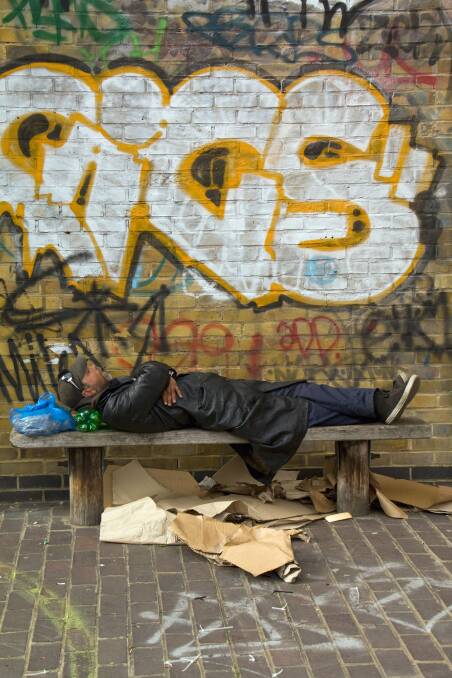
DETAILED information released this week from the 2016 census has thrown a light on the state of homelessness in our community, and in Australia more broadly.
Subscribe now for unlimited access.
$0/
(min cost $0)
or signup to continue reading
According to the Australian Bureau of Statistics, more than 116,400 people were classified as homeless on census night, an increase of about 14,000 on the 2011 figures, which were up by a similar amount on the 2006 census.
In the Hunter region, the number of homeless on census night totalled 1747, an increase of about 12 per cent on the 2011 figure. The Newcastle and Lake Macquarie total was 1208, up from 1068 in 2011. In relative terms, the Newcastle and Lake Macquarie figures were in line with the national rate, with about one person in 200 defined as homeless.
The figures do not just include those sleeping rough. They also take in those living in supported accommodation for the homeless, those staying temporarily with others, those in boarding houses, temporary lodgings and “severely” crowded lodgings.
But regardless of the finer points of each person’s form of shelter, the reality is that for this slice of the population, many of the everyday things that the vast majority of us take for granted are effectively out of reach.
As the ABS says in a release accompanying the data, homelessness is more than a shortage of houses, with domestic violence, a shortage of affordable housing, unemployment, mental illness, family breakdown and drug-and-alcohol abuse all contributing to the situation.
What this means, effectively, is that homelessness is very often a symptom of other difficulties, as well as an issue to be tackled by itself.
To this end, Compass Housing Services, set up more than 30 years ago in Newcastle, has grown to manage more than 4400 properties across NSW, Queensland and New Zealand.
Former UK academic David Adamson, an emeritus professor with the University of NSW who joined Compass in 2015, says it’s astounding that Australia does not have a national plan for homelessness. Credited with some notable successes on housing and poverty in the UK, Professor Adamson says we need evidence-based policies in order to counter this growing problem. For a nation as wealthy as Australia, an increasing rate of homelessness is another sign of a society typified by growing inequality.
ISSUE: 38,749.

